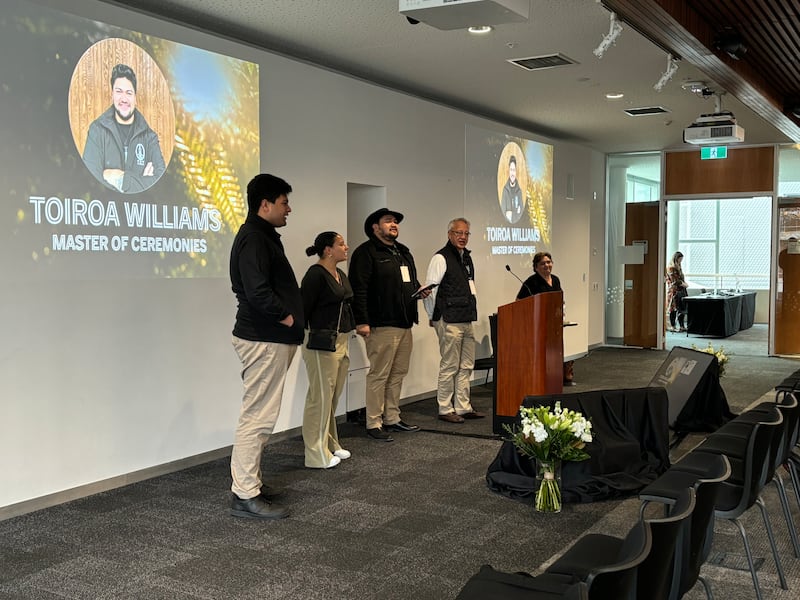An indigenous research symposium has brought together eminent rangahou Māori from Te Wānanga Aronui o Tāmaki Makau Rau for a day of wānanga.
Dr Ella Henry and Professor Pare Keiha attended this morning’s event, sharing their experiences of advocating for their rightful place in academia.
Henry, a prominent figure with over 30 years in kaupapa Māori research, delivered a keynote address and expressed her pride in being part of a movement that had broken barriers.
“I’m proud to be part of an ope (brigade) that just kicked that door in and said not only is there Māori business, there is kaupapa Māori business.
“We traversed the oceans for 3000 years using matauranga Māori as our science and this next generation will carry that tradition forward.”
Henry highlighted her efforts in dismantling barriers for Māori and reflected on her early academic journey.
“I’m very pleased our researchers are at the fore at Auckland University of Technology and more importantly that it has made this very important space for rangahou Māori.
“When I first started my master’s thesis 33 years ago, I wanted to study Māori business and one of the professors said there was no such thing- there was just business.”
Pro-vice chancellor for Māori advancement Professor Pare Keiha was the second Māori with a PhD to be appointed when he joined AIT in 1998.
“We can do anything, and more importantly, if we are allowing others to determine our future, we should fight against it.
“Now my own graduates are our professors. I mihi to all of those who will follow after me, who will ask all those awkward questions.”
Keiha announced his upcoming departure from the university but expressed hope his students would follow in his footsteps.
“Our future of Māori is a rosy one. If we’re willing to seize the opportunities available to us, but more importantly, if we build our future on our own values, tika, pono and our own relationships, whakapapa, whanaungatanga, then we can do anything.”
He stressed the importance of being present in spaces where Māori representation was lacking.
From his experience, he hoped the university could create opportunities for rangatahi to thrive in those spaces. “... without those questions, without that kaha we will effectively continue to be the victims of the answers to the questions that other people want to ask about us.”




